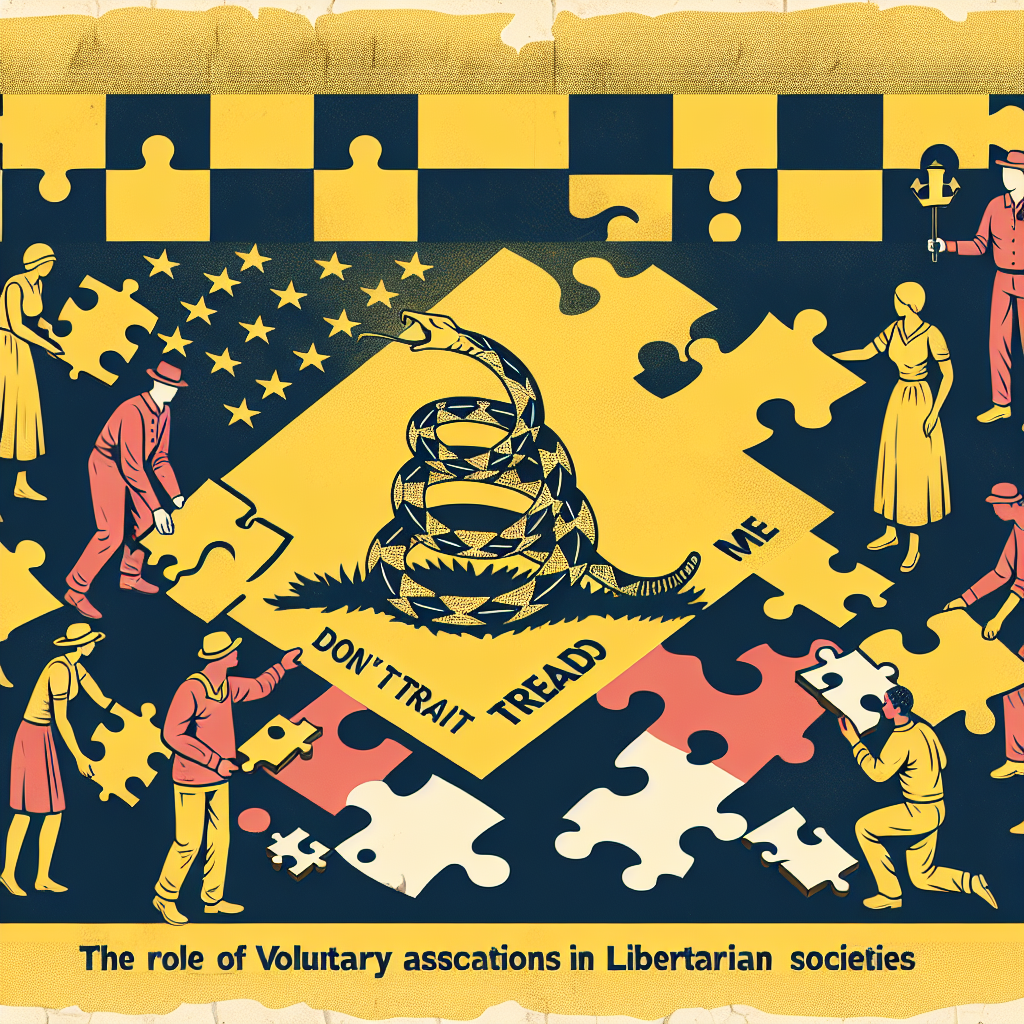The Role of Voluntary Associations in Libertarian Societies
In libertarian societies, where individual freedom and personal responsibility are paramount, voluntary associations play a crucial role. These associations foster community engagement, promote mutual aid, and enhance social cohesion. In this article, we will explore the multifaceted contributions of voluntary associations in libertarian contexts, examining their benefits, challenges, and their critical role in strengthening civil society.
Understanding Voluntary Associations
What are Voluntary Associations?
Voluntary associations are groups formed by individuals who come together of their own free will. They share common interests, beliefs, or goals, and operate without government coercion. Examples include clubs, nonprofit organizations, community groups, and cooperatives. In a libertarian society, these associations flourish due to a lack of state intervention, allowing individuals to pursue their passions and interests freely.
Key Characteristics of Voluntary Associations
- Autonomy: Members operate independently, making decisions collectively and autonomously.
- Mutual Benefit: They aim to provide services, support, or benefits to their members and the community.
- Non-coercive: Entrance and participation are voluntary, with no compulsory mandates.
The Benefits of Voluntary Associations
Promoting Civic Engagement
Voluntary associations encourage active participation in community life. They empower individuals to contribute their skills and resources, fostering a sense of responsibility and belonging. Through volunteering and collaboration, members strengthen their connection to the community.
Facilitating Mutual Aid
In libertarian societies, voluntary associations often become vital networks for mutual aid. They provide support in times of need without relying on government assistance. For instance, grassroots groups may offer food drives, shelter, or medical assistance to those facing hardship.
Enhancing Social Capital
Social capital refers to the networks and relationships that facilitate cooperation among individuals. Voluntary associations enhance social capital by creating trust and collaboration among members. This, in turn, strengthens the fabric of society, making it more resilient and adaptive to challenges.
Fostering Innovation and Creativity
Due to their flexible structures, voluntary associations can adapt quickly to changing circumstances and explore new ideas. This fosters innovation and creativity, as individuals feel free to experiment and share their unique talents. From local artists’ collectives to entrepreneurial cooperatives, these groups often spearhead new initiatives that benefit the community.
The Challenges Faced by Voluntary Associations
Lack of Resources
While voluntary associations thrive on community involvement, they often struggle with limited funding and resources. Many rely on donations and volunteer work, which can lead to challenges in scaling operations or sustaining initiatives over the long term.
Maintaining Engagement
Another challenge is maintaining member engagement. As people’s interests and availability change, voluntary associations may face difficulties in keeping members involved and invested in ongoing projects. This can limit the effectiveness of initiatives aimed at addressing communal issues.
Overcoming Fragmentation
In a diverse libertarian society, numerous associations may arise with overlapping goals, leading to fragmentation. While competition can drive innovation, it may also splay efforts, making it more challenging for groups to collaborate effectively toward common objectives.
The Future of Voluntary Associations in Libertarian Societies
Strengthening Networks
As libertarian societies evolve, the role of voluntary associations will likely expand. Strengthening networks among these associations can foster collaboration and resource sharing, allowing them to address broader social challenges more effectively.
Leveraging Technology
Advancements in technology offer tools for voluntary associations to enhance their operations. From online fundraising platforms to social media outreach, technology enables groups to connect, promote their missions, and engage with wider audiences.
Emphasizing Educational Initiatives
Educational efforts can empower individuals to understand the importance of voluntary associations in a libertarian context. By raising awareness about their benefits and inviting participation, these groups can cultivate a more engaged citizenry.
Conclusion
Voluntary associations are vital to the health and vitality of libertarian societies. By promoting civic engagement, facilitating mutual aid, and fostering social capital, these groups contribute significantly to community resilience and innovative solutions. Despite facing challenges, the continued evolution and strengthening of voluntary associations will play an essential role in the development of a flourishing libertarian society. By embracing collaboration and leveraging resources, we can ensure that these organizations not only survive but thrive in the years to come.
Share this content:












Post Comment